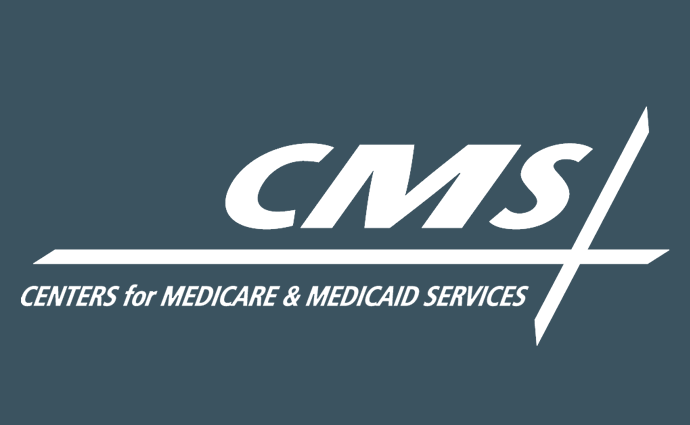CMS to Pay For Hospital COVID-19 Care Furnished in Other Settings
CMS also relaxed other regulations to boost hospital capacity and workforce, including using non-healthcare settings for COVID-19 care and paperwork requirements.

Source: Centers for Medicare & Medicaid Services
- CMS recently announced new, temporary regulatory flexibilities for hospitals battling the COVID-19 pandemic.
For more coronavirus updates, visit our resource page, updated twice daily by Xtelligent Healthcare Media.
In the announcement on Monday, CMS Administrator Seema Verma unveiled the “Hospitals Without Walls” initiative, which aims to bolster hospital capacity by enabling hospitals to leverage capacity at other healthcare facilities and beyond to treat COVID-19 patients.
“Every day, heroic nurses, doctors, and other healthcare workers are dedicating long hours to their patients,” she said in the announcement. “This means sacrificing time with their families and risking their very lives to care for coronavirus patients.”
“Front line healthcare providers need to be able to focus on patient care in the most flexible and innovative ways possible. This unprecedented temporary relaxation in regulation will help the healthcare system deal with patient surges by giving it tools and support to create non-traditional care sites and staff them quickly.”
READ MORE: CMS Offers Upfront Medicare Reimbursement During COVID-19 Pandemic
The US currently has the most confirmed cases of COVID-19, with over 164,600 cases according to numbers from Johns Hopkins University at the time of publication. That number has skyrocketed over the last couple of days, and hospitals anticipate an even greater surge of patients in the coming weeks.
The Hospitals Without Walls initiative will relax regulations limiting hospital care and billing within the organization’s metaphorical four walls. For example, CMS will now allow hospitals to leverage the capacity at ambulatory surgical centers that have canceled elective surgeries during the pandemic and other available spaces within the community.
“Under CMS’s temporary new rules, hospitals will be able to transfer patients to outside facilities, such as ambulatory surgery centers, inpatient rehabilitation hospitals, hotels, and dormitories, while still receiving hospital payments under Medicare,” CMS explained in the announcement. “For example, a healthcare system can use a hotel to take care of patients needing less intensive care while using its inpatient beds for COVID-19 patients.”
During the public health crisis, CMS will also permit physician-owned hospitals to increase number of beds without incurring sanctions, ambulances to transfer patients to a wider range of locations including physician offices, and dialysis facilities to create locations just to care for COVID-19 patients. Hospitals, laboratories, and other providers will also be able to perform COVID-19 tests in people’s homes and other community-based settings, as well as drive-through and off-campus test sites, the announcement stated.
Hospitals will be able to bill for services furnished outside of their walls and ambulatory surgery centers can contract with local health systems to provide hospital services or enroll and bill as hospitals during the emergency.
READ MORE: Hospitals to Lose $1K Per COVID-19 Case Despite Medicare Rate Bump
“The new CMS guidelines allows healthcare systems, hospitals, and communities to set up testing and screening sites exclusively for the purpose of identifying COVID-19 positive patients in a safe environment,” CMS said of the regulatory flexibilities granted across the healthcare system.
In addition to the Hospitals Without Walls initiative, CMS also announced on Monday temporary flexibilities to rapidly expand the healthcare workforce.
The federal agency issued a blanket waiver that will allow hospitals to support their current workforce by meals, laundry service, and/or child care services while providers are at the hospital treating patients. The agency is also making it easier for providers to enroll in Medicare by offering temporary employment to local clinicians and trained staff in local private practices.
Additionally, CMS is temporarily waiving certain practice restrictions, such as allowing medical residents to provide services under the direction of a teaching physician who can be there in person or via audio/video technology. Nurses will also be able to conduct on-site visits every two weeks for home health and hospice services, including evaluating if aides are furnishing care plans consistently and appropriately.
Both efforts to increase hospital capacity and the healthcare workforce also come with administrative flexibilities, CMS stressed. For example, hospitals will be able to use more verbal over written orders to keep doctors focused on patient care.
READ MORE: Playing Defense Key to Overcoming Fiscal Challenges of COVID-19
CMS is also temporarily waiving other paperwork requirements, such as having written policies on processes and visitation of patients in COVID-19 isolation. Medicare specifically will also now cover respiratory-related devices and equipment for any medical reason and telehealth services furnished in a wider range of locations, including nursing or assisted living facilities, and services, including emergency department and home visits.
Verma stressed in the announcement that these regulatory flexibilities are only available during the public health emergency declared by HHS Secretary Alex Azar in January and hospitals can only leverage opportunities like Hospitals Without Walls in accordance with the state’s pandemic plan.
